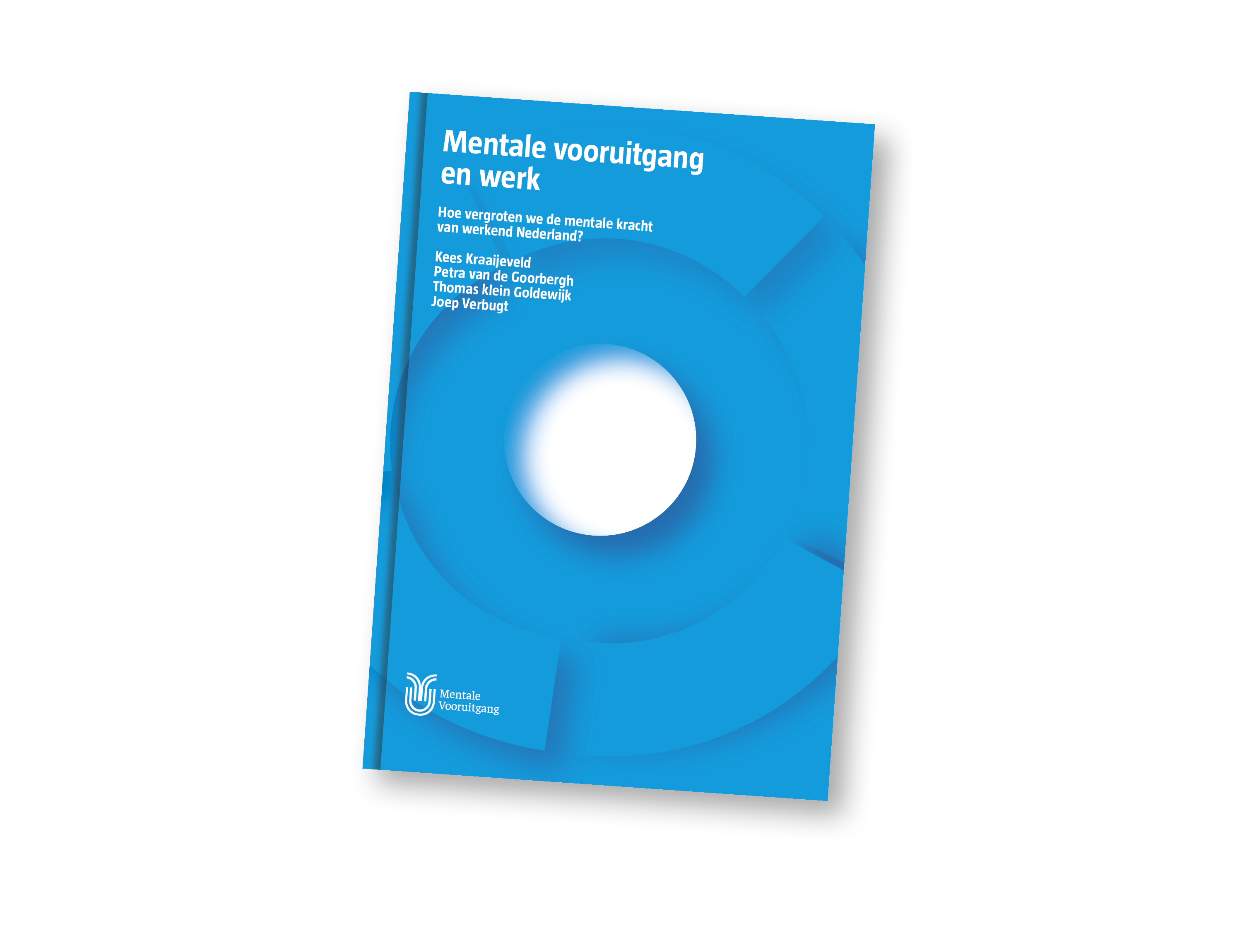Rudo Vissers: "Work absenteeism, you don't have to be sick to get better"
Psychological complaints are part of life just as physical complaints are. Yet expressing - and reacting to - psychological complaints is still very difficult for many people. If someone walks in with a broken arm, nobody is surprised. In fact, some well-meaning advice is often immediately given and adjustments are made where necessary. But when someone says they sometimes have gloomy thoughts, both this person and those around them often get mild panic. This is because we have never learned how to deal with them. This must and can be done better.
Need for diagnosis
Everyone goes through things in his or her life. That includes not so nice things. It is human to react to things you experience. How you do this varies from person to person. If you fall down the stairs, pain in your back may result, but it doesn't have to. It's as simple as that. The same goes for mental illness. Yet it seems that as a society we need diagnoses. For someone who is not feeling well, it seems easier to bring this up when a diagnosis has been made. Only when a doctor has determined what is going on, for example burnout, is the threshold for raising it in the environment suddenly much lower. It seems as if complaints are only allowed to be there when an official diagnosis has been made. As if you can't 'just' feel down for a period of time.
Unholy route
But labeling and then applying a protocol that allows the label to come off is a completely unhelpful route. Because the people on whom a diagnosis label is placed, very often do not get rid of it. And vice versa: if someone does not meet all the "requirements" for a diagnosis and is thus told that "everything is fine," this only leads to someone becoming even sicker and more insecure.
The first time I noticed this was at the start of my working life as a physical therapist. I mobilized joints, had spinal columns anxiously cracked, imposed exercise protocols and corrected every disturbance in the chain of motion. To my surprise, initial disappointment and later joy, I found out more and more that diagnosing, and getting rid of and reducing limitations and complaints by no means always led to a happier person or a person with more vigor or to someone who achieved more.
Forever patient
In many cases, a healthy mind in a "ramshackle" body still functions much better than the other way around. Sick people to whom, after various examinations, it was said that nothing was wrong, on average did not improve. Rather, it made them even sicker and more insecure. People who were given a diagnosis label never got rid of it and remained patients forever. Yet we like it. The "embarrassment diagnoses" in health care were created for a reason. It seems like an upside-down world.
Acknowledge psychological symptoms and make them negotiable
The question is how to deal with mental health symptoms. The answer is probably simpler than you think, namely by acknowledging the complaints. By acknowledging that complaints are allowed to be, and sometimes just belong. It is important to create an environment in which there is room to discuss emotions and feelings. In which it feels safe for both employee and employer to discuss them honestly. Do not shy away from the impact this has on work.
Custom
Steer for responsibility at the same time: advise people to discuss with their employer how this affects their work. Let them together take care of adjustments, control space and relaxation. Ensure that people remain involved in their work; this is a crucial part of everyone's well-being. It is essential to look at what the wishes and needs are in each situation, rather than using a standard protocol. Everyone knows that each person is unique with a different personality, experiences or challenges. In all kinds of situations, this is respected. It is incomprehensible that with psychological complaints the same treatment protocol is used for everyone. Especially with these types of complaints, it is important to stay far away from a standard protocol. And instead make customized adjustments and ensure sufficient relaxation.
Accept ups and downs
You don't always have to be sick to get better. Both physical and psychological symptoms are part of life. Everyone has to deal with them from time to time. Therefore, teach people to accept that it is part of life. Feelings and thoughts are allowed, but it is crucial to deal with them in the right way. Always focus on personal responsibility, so that a customized approach can be used to improve and increase mental well-being. It is wonderful that people can recover so quickly without first having to be diagnosed for what exactly is wrong.

Come work for paraDIGMA groep and help us make a difference in the field of Sustainable Employability!
RELATED POSTS
In the aftermath of the global COVID-19 pandemic, the way we work has changed dramatically. The period forced organizations to quickly shift to new working models that they had previously easily [...]
It's really true, we live in a digital age. Everything you need within an instant at your fingertips. Not only privately, but also in the workplace, digitalization is growing stronger [...].
What is needed for Dutch people to become mentally empowered by their work, rather than mentally exhausted by it? How can we (non-)workers, employers and the whole field of [...]




